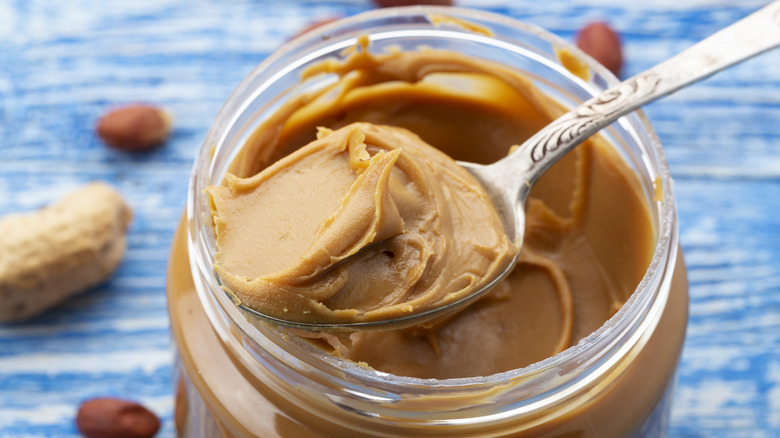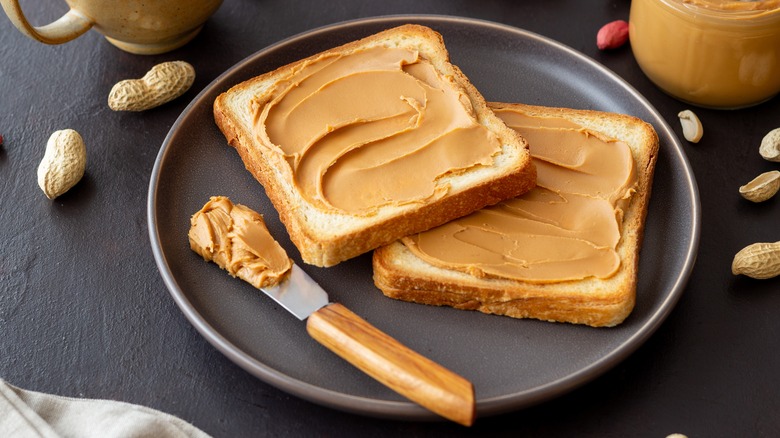Is Peanut Butter Good For You?
Whether you like it creamy or crunchy, peanut butter is a delicious staple in many pantries and food cabinets. You can eat a spoonful of peanut butter for a solo snack, make a good ol' peanut butter and jelly sandwich for lunch, or lather some peanut butter on pieces of banana, apple, or celery for a delicious combination of flavors. NPR reports that peanut butter is so popular that households in the United States collectively eat hundreds of millions of pounds of the beloved commodity each year. This puts annual peanut butter sales at close to a billion dollars. But how healthy is peanut butter, and is it really good for you?
For a small percentage of people, peanut butter is a substance that can pose serious safety threats, largely due to peanut allergies (via Healthline). If you have a peanut allergy, you should probably stay far away from peanut butter — as it could be a potentially fatal snack. However, approximately 99% of people aren't allergic to peanuts. So deciding to consume the nut-based spread should be predicated on weighing the pros and cons of peanut butter's ingredients.
Should someone be seeking a food packed with protein, peanut butter is an easy choice, with an average of 22.5 grams of protein per 3.5-ounce serving. But if you're looking to cut down on trans fats and added sugars, you may want to pay more attention to the nutrition facts on the peanut butter jar of your choosing.
Be mindful of added ingredients
Not all peanut butter is made the same. Several brands commonly found on grocery store shelves contain excess amounts of vegetable oil, trans fats, and added sugars, while natural peanut butter brands and homemade peanut butter can be made without the extra ingredients that detract from the food's nutritional benefits (via WebMD). Peanut butter is usually made from roasted peanuts that are ground into a paste, which can be consumed organically or with a touch of salt. If purchased, check for a label indicating that the product is natural peanut butter, or you can decide to make your own spread at home. When made without unhealthy added ingredients, peanut butter can be an extremely healthy choice. While some additives may void it as a vegan option, peanut butter is an excellent source of plant-based protein. The spread comes with many health benefits, per Healthline.
Although incorporating peanut butter into your regular diet can be beneficial, be mindful to eat it in moderation just like other foods in your diet, reports Medical News Today. When consumed habitually, peanut butter can assist with weight loss and weight management, improve cardiovascular health, and reduce the risk of developing heart disease, breast disease, and diabetes. For people who exercise frequently and aim to build muscle, the high caloric content of peanut butter and protein can assist with seeing results in the gym. The protein in peanut butter also aids in muscle repair and recovery after strenuous workouts.


